Baldness, a condition commonly referred to as alopecia, significantly impacts individuals worldwide, affecting not only their appearance but also their self-esteem and emotional well-being. This multifaceted concern transcends mere aesthetics, often leading to profound psychological effects that resonate deeply with those affected.
Baldness, an often disconcerting condition, holds significant sway over the lives it affects. While it’s commonly associated with aging, the cause of baldness can be a complex tangle of factors that extend beyond the relentless march of time.
Delving into the reasons for baldness requires us not only to navigate a labyrinth of genetic and environmental elements, but also to derive insights from a confluence of cultural understandings.
In seeking to derive the reasons for baldness, we must embrace a holistic approach. Eastern traditions offer a philosophical lens, seeing hair loss as potentially rooted in life’s imbalances, while Western medicine provides a scientific framework, pinpointing hormonal changes and genetic predispositions. It is through this synthesis of thought that a more comprehensive picture emerges—one that respects the nuances of the cause of balding.
Key Takeaways
- Nutrition and Organ Health: Organ health is crucial for nourishing hair follicles, and organ dysfunction can lead to hair loss.
- Impact of Malnutrition: A balanced diet is key to preventing the hair loss associated with nutritional deficiencies.
- Natural Treatments: Foliprime Hair Serum is a biomimetic, plant-based alternative for hair regrowth, without the side effects of conventional treatments.
- Comparative Effectiveness: Foliprime offers a competitive, natural solution when compared to traditional hair loss treatments.
- Comprehensive Understanding: Personalized treatment plans are essential, as they are based on an understanding of the various causes of baldness.
This exploration across divergent schools of thought not only derives the reasons for baldness but also fosters a compassionate understanding of those it touches. Each individual’s experience with hair loss is a deeply personal narrative woven into their identity. As we progress, we aim to illuminate the varied pathways that lead to baldness and, with empathy, guide readers towards a path of resolution and acceptance.
Understanding the Root Causes of Balding
Hair loss is a complex condition influenced by a myriad of factors. Among these, heat distribution on the scalp and hormonal imbalances play crucial roles. Traditionally, Western medicine has focused on the genetic aspects of balding, but recent research has begun to derive further reasons, suggesting a blend of lifestyle, hormonal, and environmental factors.
Heat Distribution Imbalance and Scalp Health
Eastern medicinal practices often look at the body’s balance, with scalp health being no exception. The belief is that excessive heat in the scalp area can lead to weakened hair follicles.
This heat could stem from stress, a sedentary lifestyle, or even dietary habits. The connection between a well-regulated scalp temperature and healthy hair growth is now being examined through scientific research, bridging the gap between old beliefs and modern understanding.

Hormonal Imbalance and Hair Loss
Hormones like estrogen and thyroid hormones have a profound impact on the hair growth cycle, particularly in women. Low levels of estrogen, often seen during menopause, can lead to female pattern baldness, while thyroid dysfunctions can result in thinning hair. Understanding these connections is vital, as it can lead to targeted treatments and preventative measures.

DHT’s Role in Male Pattern Baldness
In men, DHT, or dihydrotestosterone, a derivative of testosterone, is a known culprit in male pattern baldness. The conversion of testosterone to DHT can shrink hair follicles, shortening the lifespan of hair strands. Research is increasingly focused on how to mitigate this conversion and protect against hair loss.

Discover more about hair health and preservation strategies through our comprehensive guides. Explore scalp cooling techniques and hormonal treatments to combat hair loss. Delve deeper into the science of hair with our in-depth article on DHT and male pattern baldness — your journey towards understanding and tackling hair loss begins here.
Autoimmune System and Stress: The Invisible Culprits
The journey through the labyrinth of hair loss causes often leads to two less visible yet formidable adversaries: the autoimmune system and stress. Both play crucial roles in the health of one’s scalp and hair, and their impact can be both profound and unexpected.

Autoimmune Disturbances Leading to Hair Loss
Autoimmune disorders manifest when the body’s sentinel system mistakenly targets its own cells. In the realm of hair health, this can lead to conditions such as alopecia areata, where the immune system assaults the hair follicles, resulting in sudden and sometimes extensive hair loss. Key factors include:
- Genetic Propensity: Individuals with a family history of autoimmune diseases are more susceptible.
- Environmental Triggers: External factors may prompt the immune system to react.
- Inflammatory Response: Chronic inflammation can disrupt the normal hair growth cycle.
Understanding the intricate relationship between immune health and hair integrity is paramount. For those navigating this complex condition, our section on immune health and hair loss offers a wealth of knowledge and actionable advice.
The Impact of Stress on Hair Growth
Stress, the silent disruptor of numerous bodily functions, also exerts its influence on hair growth. Both physical and emotional stressors can trigger conditions like telogen effluvium, where hair prematurely enters the resting phase, or exacerbate alopecia areata. Stress-induced hair loss is often characterized by:
- Sudden Onset: Rapid hair shedding is a common symptom.
- Diffuse Thinning: Hair loss is typically widespread across the scalp.
- Reversible Nature: With stress management, hair may regrow over time.

To combat stress-related hair loss, it’s essential to adopt comprehensive stress reduction strategies. We encourage readers to delve into our insightful articles on stress management techniques and explore how a balanced lifestyle can lead to a fuller head of hair. Join us in uncovering effective solutions and embrace the path to recovery and rejuvenation.
Organ Dysfunction and Nutrient Supply to Follicles
The human body’s organ systems are interconnected in ways that are crucial for maintaining hair health. The spleen, lungs, and kidneys form a triad that’s especially important for the nourishment and growth of hair follicles.
The spleen’s role in transforming food into nutrients that fuel the body, the lungs’ responsibility for oxygenating the blood, and the kidneys’ function in filtering waste are all processes that, when compromised, can lead to the malnutrition of hair follicles, ultimately affecting hair growth and health.

The Spleen, Lungs, and Kidney: A Triad Affecting Hair Health
- Spleen Health: The spleen is vital in blood formation and the management of nutrients. A weakened spleen can lead to inefficient nutrient absorption, depriving hair follicles of the sustenance they need to grow healthy hair.
- Lung Function: Proper lung function ensures that the blood is well-oxygenated. Oxygen-rich blood is essential for delivering the necessary nutrients to the scalp and hair follicles.
- Kidney Efficiency: The kidneys help to regulate hormone levels and filter out toxins. Any dysfunction can result in hormonal imbalances that may contribute to hair thinning or loss.
Malnutrition and Hair Fall
Nutrition is the cornerstone of a healthy hair growth cycle. Malnutrition—a lack of sufficient nutrients—can disrupt this cycle, leading to weakened hair structure, slower growth, and ultimately, hair fall. Key nutrients like protein, iron, vitamins A, C, D, and E, and omega-3 fatty acids are fundamental for follicular health. Without these, the hair may enter the resting phase too quickly, resulting in noticeable hair loss.

Introducing Foliprime Hair Serum: A Natural Path to Hair Regrowth
In the search for hair regrowth solutions, Foliprime Hair Serum emerges as a natural alternative to synthetic options. Crafted from biomimetic and plant-based compounds, this serum is designed to nurture the scalp and revitalize hair follicles without the need for harsh chemicals. Its formulation is rich in antioxidants and nutrients like biotin, peptides, and herbal extracts known to support hair health.
Looking to combat hair loss naturally? Discover the nourishing power of Foliprime Hair Serum and how its natural ingredients can support your hair growth journey. Embrace a healthier scalp and stronger hair with our guide to the benefits of plant-based hair care at Natural Hair Growth Solutions.
Why Choose Foliprime Hair Serum?
When it comes to hair loss treatments, the market is saturated with options like Finasteride and Minoxidil. However, Foliprime Hair Serum stands out due to its natural composition and gentle action.
Unlike Finasteride, which can have systemic side effects and is typically prescribed for male-pattern baldness, Foliprime is free from harsh chemicals, making it suitable for a broader audience, including women.
Minoxidil, on the other hand, requires ongoing application and can sometimes lead to scalp irritation. Foliprime’s plant-based formula supports hair health without these drawbacks.
In a comparative analysis, Foliprime’s advantages become clear:
- Chemical-Free: Foliprime is free from synthetic additives, reducing the risk of unwanted side effects.
- Universally Applicable: Suitable for all genders and various hair types.
- Ease of Use: A simple, non-medicinal regimen that integrates seamlessly into daily self-care routines.
Are you seeking a gentle yet effective solution for hair regrowth? Experience the difference with Foliprime Hair Serum, a natural and nourishing alternative to traditional hair loss treatments. Click to read more about Foliprime’s unique benefits over Common Hair Loss Treatments and take the first step towards a fuller, healthier head of hair.
Conclusion
In summing up the discourse on hair loss, it’s pivotal to acknowledge that baldness stems from a myriad of causes, ranging from genetic predispositions to lifestyle factors. Understanding these root causes is the first step in tailoring an effective treatment plan. Foliprime Hair Serum has been presented as a promising path for those seeking a natural remedy. Its efficacy is not just in treating the symptoms but in nourishing the scalp and hair follicles to promote sustainable hair growth.
Key takeaways from the article include:
- Recognition of the complex etiology of hair loss.
- The importance of selecting treatments that align with individual needs and conditions.
- The potential of natural solutions, such as Foliprime Hair Serum, to mitigate hair fall without adverse effects.
Embarking on your journey to fuller hair begins with choosing the right treatment. Discover how to combat hair loss naturally by reading our Natural Hair Loss Solutions and peruse through our Product Reviews for honest insights on the latest hair care products. Let stagesofbalding.com guide you towards a head full of healthy hair—click and explore today.
Frequently Asked Questions
Q: What nutritional deficiencies could lead to hair loss?
A: Hair loss can often be attributed to a deficiency in essential vitamins, particularly when there’s a lack of vitamin D, vitamin E, and certain B vitamins.
Q: How does DE|RIVE contribute to hair regrowth?
A: DE|RIVE, with its biomimetic formulation, aims to replicate the natural growth factors in hair, potentially reversing hair loss and stimulating the scalp for hair regrowth.
Q: Can certain illnesses be responsible for hair loss?
A: Yes, various illnesses can cause hair loss, including autoimmune disorders, thyroid disease, and infections.
Q: Why are women experiencing hair fall?
A: The reasons for hair fall in females can range from hormonal changes and stress to nutrient deficiencies and certain hairstyles that pull on the hair.
Q: What could be causing a bald spot on the head of a woman?
A: A bald spot on the head of a woman can be caused by conditions like alopecia areata, hormonal imbalances, or even stress.
Q: What are the available treatments for alopecia?
A: Alopecia treatment options vary depending on the type and severity but may include topical treatments, medications, light therapy, and lifestyle changes.
Q: Is hair loss indicative of a serious health issue?
A: While hair loss can be a sign of something serious, such as an underlying health condition, it’s important to consult with a healthcare provider for an accurate diagnosis.
Q: Can viruses lead to hair loss?
A: Certain viruses can indeed cause hair loss, as they may trigger an immune response that affects the hair growth cycle.
Q: What are common causes of alopecia in males?
A: Alopecia in males is commonly caused by genetic factors, hormonal changes (like those involving DHT), and environmental influences.
Q: How can I prevent balding?
A: Preventing baldness involves a combination of a healthy diet, stress management, avoiding harsh hair treatments, and considering natural supplements that support hair health.
Q: Can lost hair from baldness grow back?
A: Regrowth of lost hair depends on the cause of baldness. While some conditions are reversible with treatment, others might result in permanent hair loss.
Q: Is it possible to fix baldness?
A: Although there’s no one-size-fits-all solution, treatments ranging from medication to surgical options like hair transplants may help address baldness.
Q: What is the main cause of baldness in females?
A: The main cause of female baldness is typically hormonal imbalance, but it can also be due to genetics, stress, and certain medical conditions.
Related Post
- Does Dove shampoo cause hair loss
- Can chlorine cause hair loss
- does Vyvanse cause hair loss
- Does wearing hats cause balding
- Does creatine cause balding
- does hot showers cause hair loss
- Does hair gel cause hair loss
- do dreads cause balding
- Hair loss myths
- what ingredient in shampoo causes hair loss
- facts about balding
- can too much magnesium cause hair loss
- can weight gain cause hair loss
- Does Maui Moisture Cause Hair Loss
- Dose SARMs Cause Hair Loss
- Does dandruff cause balding
- AI Powered Bald Filter Online 2024: See Yourself with No Hair! - January 19, 2024
- Harklinikken Bad Reviews 2024: Analyzing Negative Feedbacks - January 18, 2024
- How to Get the Alex Eubank Hair | Step-By-Step Tutorial 2024 - January 18, 2024

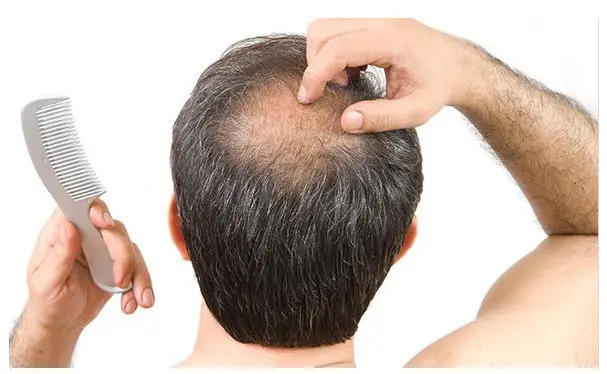
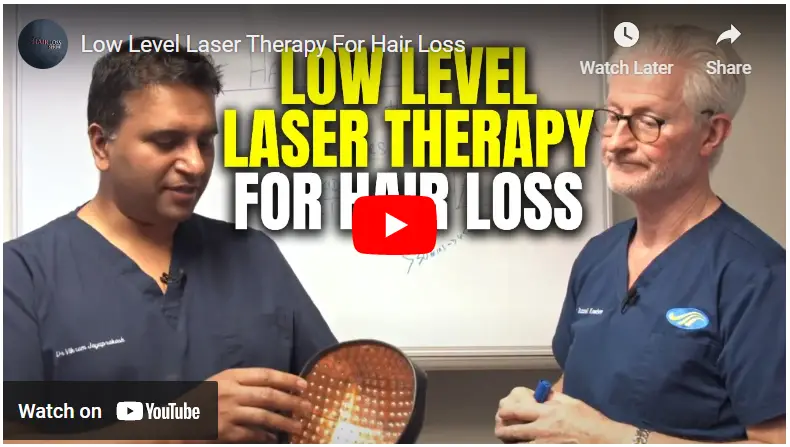
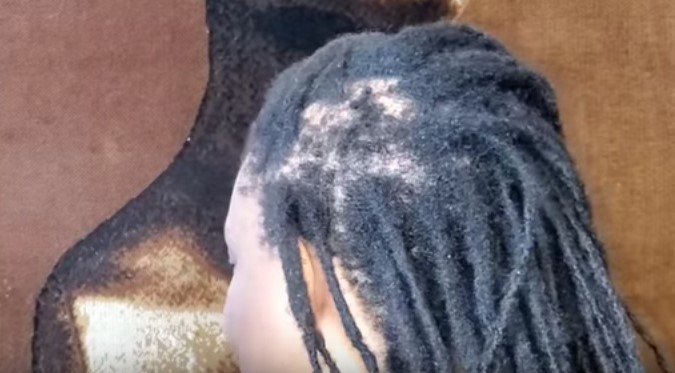
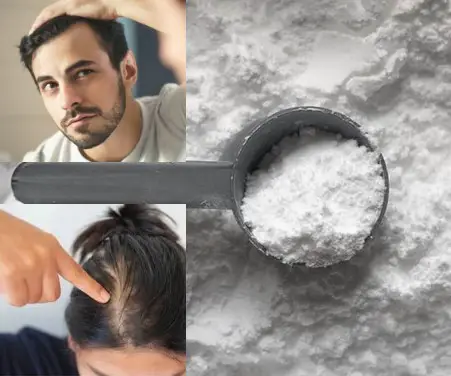
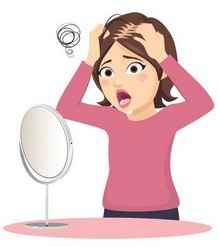


Right now it appears like Movable Type is the best blogging platform available right now.
(from what I’ve read) Is that what you’re using on your blog?